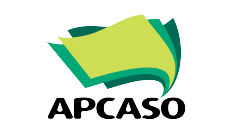
What is CRG?
CRG, or “communities, rights, and gender,” refers to interventions that aim to ensure that country responses and programmes on HIV, TB, and malaria are community-focused, human rights-based, and gender transformative. The promotion of CRG is based on evidence that for HIV, TB, and/or malaria interventions to be effective, communities, human rights, and gender should be a central part of our response to these diseases.

CRG Platform in Asia & the Pacific
The Asia-Pacific Platform on Communities, Rights, and Gender (APCRG) is a communications and coordination platform for civil society groups, key population networks, non-governmental and community-based organisations that are involved in the response to fight HIV, TB, and malaria. It is one the six regional platforms that were established with the support of the the Global Fund to Fight AIDS, TB, and Malaria (the Global Fund) under the Community, Rights, and Gender Special Initiative (CRG SI).
The creation of the Regional Platforms reflects the urgency of including CRG-related interventions in HIV, TB, and malaria programmes. Specifically, the platforms hope to:
- Improve the knowledge of civil society and community-based organizations on the Global Fund and on how to access technical assistance to improve the inclusion of CRG-related interventions in their HIV, TB, and malaria programmes;
- Coordinate with other technical assistance providers in the region;
- Improve understanding on the technical assistance and capacity gaps of civil society and community-based organizations to promote and/or implement CRG-related interventions; and
- Promote strategic CRG-related capacity-building initiatives in the region.

The work of APCRG
As a coordination and communications platform, APCRG supports initiatives to help civil society groups, key population networks, non-governmental and community-based organisations to push for the inclusion of CRG-related interventions in different HIV, TB, and malaria programmes across the region. Our work includes the following:
- Coordinating and facilitating communications among different stakeholders from civil society and partners for relevant and up-to-date content and materials on CRG;
- Facilitating a deeper understanding of CRG issues among HIV, TB, and malaria civil society groups, donors, development partners, and technical assistance providers as well as improving awareness of how support can be provided to mainstream CRG interventions;
- Providing information to civil society groups, key population networks, non-governmental and community-based organisations on how to access support from the Global Fund CRG Technical Assistance Programme, or via other TA providers;
- Developing CRG resources, among them a CRG Needs Assessment tool and a module to capacitate civil society members of Country Coordinating Mechanism on how to engage at the CCM and in different NFM processes in order to advocate for CRG-related interventions;
- Through country partners and partners like UNAIDS and the Malaria Consortium, conducting CRG Needs Assessment workshops to map out CRG needs and priorities at the country level;
- Reviewing Concept Notes to assess inclusion of CRG in country programs and to provide recommendations on how to ensure that CRG issues are flagged in Concept Note narratives and CRG-related interventions are operationalised and budgeted;
- Producing community-friendly resources online and engaging in social media engagements to broaden awareness on CRG among key populations; and
- Developing resources to unpack disease-specific CRG issues, which include, among others, access to medicines as human rights and gender issues in malaria and tuberculosis.

APCASO as the platform host
APCASO is an Asia-Pacific regional civil society network of community-based and non-governmental organisations on HIV, health, and social justice, with focus on advocacy and community capacity development. It has in-country partners and focal points in 11 countries in Asia-pacific, such as Australia, Cambodia, China, Indonesia, India, Lao PDR, Malaysia, Nepal, Philippines, Sri Lanka, and Vietnam and with close working relationships with partners in Japan, Pakistan, Papua New Guinea and Thailand
APCASO is also a member of the STOP TB Coalition and sits in the global Civil Society TB Task Force. It is the Technical Advisor for the Regional Malaria Platform, which is comprised of malaria CSOs in Thailand, Myanmar, Lao PDR, Cambodia, and Vietnam. APCASO also collaborates with regional networks of key populations, including networks of people who use drugs, people living with HIV, sex workers, men who have sex with men, trans people, migrants and mobile populations, including young key populations.
As the platform host, APCASO is leveraging its work in community mobilization and partnership to link communities with donors, development agencies, and TA providers working in the three diseases in the region, which, aside from the Global Fund, include the Australian Department of Foreign Affairs and Trade, French 5% Initiative, USAID, OSF, UNAIDS, the UN Inter-Agency Task Team on Gender Equality, the Technical Support Facility, and the Technical Support Hub.
